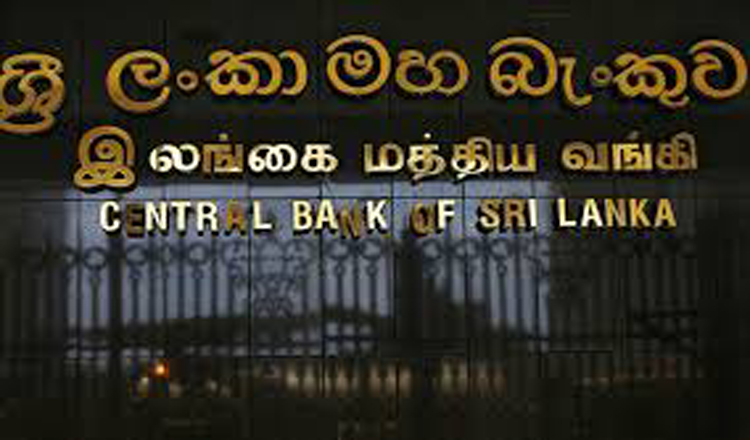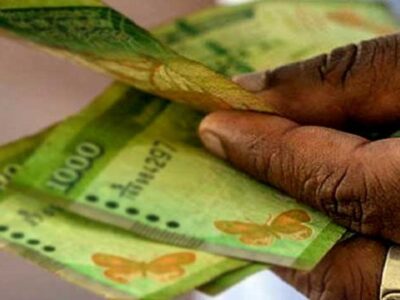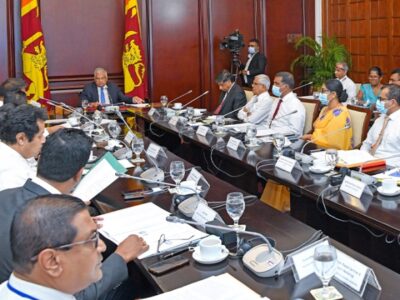(LANKAPUVATH | COLOMBO) – The Central Bank of Sri Lanka (CBSL) has requested the licensed banks to provide appropriate concessions, for a period of six months, to borrowers whose income or businesses have been adversely affected due to the current economic crisis or Covid pandemic.
With the outbreak of the COVID-19 pandemic, the Central Bank of Sri Lanka (CBSL) has introduced several concessionary schemes since March 2020, to assist affected borrowers.
Such concessions include concessionary debt moratoriums, loan restructuring/rescheduling, suspension of recovery actions, low-cost working capital loans and waivers of fees and charges for certain banking transactions.
These concessions were provided to individuals including private sector employees and small and medium enterprises (SMEs) and other businesses engaged in tourism, transportation, manufacturing, services, agriculture, construction, apparel, IT, and related logistic services.
Accordingly, the last phase of the moratorium granted to COVID-19 affected borrowers ended on 31 December 2021, while the last phase of the moratorium granted to the tourism sector ended on 30 June 2022.
In the meantime, CBSL has required the licensed banks to set up post COVID-19 revival units in licensed banks in order to identify and assist under-performing and non-performing borrowers affected by the pandemic for the purpose of reviving viable businesses with the potential of contributing to the national economic growth, thus facilitating the unwinding of moratorium in a sustainable manner.
Considering the current macroeconomic challenges and the requests made by several stakeholders including Government Institutions, CBSL has requested the licensed banks to provide appropriate concessions, for a period of six months, to borrowers whose income or businesses have been adversely affected due to the current macroeconomic and/ or due to COVID-19 pandemic while preventing any undue stress on the banking sector stability.
These concessions are provided on a case-by-case basis depending on the future repayment capacity of the individuals and the viability of businesses/ projects. The salient features of the concessions are summarized below.
a. Concessions for performing credit facilities: Borrowers can avail appropriate concessions (i.e., grace periods for capital or interest or both capital and interest or part of the capital or interest, re-structuring of credit facilities, or any other concession) for a period of six months.
b. Concessions for non-performing credit facilities: Borrowers can request for rescheduling of existing non-performing credit facilities over a longer period. Further, licensed banks are requested to suspend recovery actions against credit facilities classified as non-performing after 01.01.2020. SME paddy millers are given further concessions subject to conditions.
c. However, these concessions are not available for wilful defaulters, defaults due to diversion of funds, misuse of funds, mismanagement and/ or frauds and unviable projects.
d. Repayment plans: In the case of regular instalment loans, the new instalment amount should not exceed the contracted instalment value of the existing loan. In the case of other credit facilities, the licensed bank and the borrowers should mutually agree on an appropriate repayment plan.
e. Interest rate applicable for the amount for the period of concession: In the case of Rupee credit facilities, the interest rate to be charged on the amount for the period of concessions, should not exceed the latest contracted rate of interest (i.e., in the case of variable interest credit facilities, the latest repriced interest rate as at 07.07.2022 or in the case of fixed interest credit facilities, the interest rate agreed at the time of granting the facility) or the current Standing Lending Facility Rate (i.e., 15.5%), whichever is higher. With regard to foreign currency facilities, the licensed bank and the borrowers should mutually agree on the rate of interest.
f. Opportunity to settle the loans early without any additional cost: Licensed banks have been requested to consider, on case-by-case basis, the requests made by borrowers to settle their credit facilities early, without paying any additional fee. In the case of lease facilities, recovery of future interest will also be waived off. Borrowers who intend to avail the early settlement options should make such request to the bank on or before 30.09.2022.
g. Licensed banks have been requested not to decline the new loan applications from eligible borrowers under this scheme solely based on adverse CRIB records.
h. Request for concessions: The affected borrowers are requested to apply for the above concessions on or before 31.07.2022, in writing or through electronic means. The applicants will be duly informed regarding the decision of the respective licensed bank within one month of the receipt of the request. In the case of a rejected application, the licensed bank should inform the applicant the reasons for the rejection and that there is an opportunity to appeal against such rejection to the Director, Financial Consumer Relations Department of the Central Bank of Sri Lanka.
Licensed banks and borrowers are expected to collaborate in implementing and availing these concessions during these challenging times in the interest of subsiding the stress on individuals and ensuring the sustainability of businesses which are expected to address the current challenges and support the economic recovery.
Further details on COVID-19 revival units and the concessions available for affected borrowers can be obtained from Circular No. 1 of 2022 on Guidelines on Establishment of Post COVID-19 Revival Units in Licensed Banks and Circular No. 2 of 2022 on Concessions to Affected Borrowers Amidst the Prevailing Extraordinary Macroeconomic Circumstances, respectively, which can be accessed through the following links:
https://www.cbsl.gov.lk/sites/default/files/cbslweb_documents/laws/cdg/bsd_circular_no_1_of_2022 _e.pdf
https://www.cbsl.gov.lk/sites/default/files/cbslweb_documents/laws/cdg/bsd_circular_no_2_of_2022 _e.pdf




